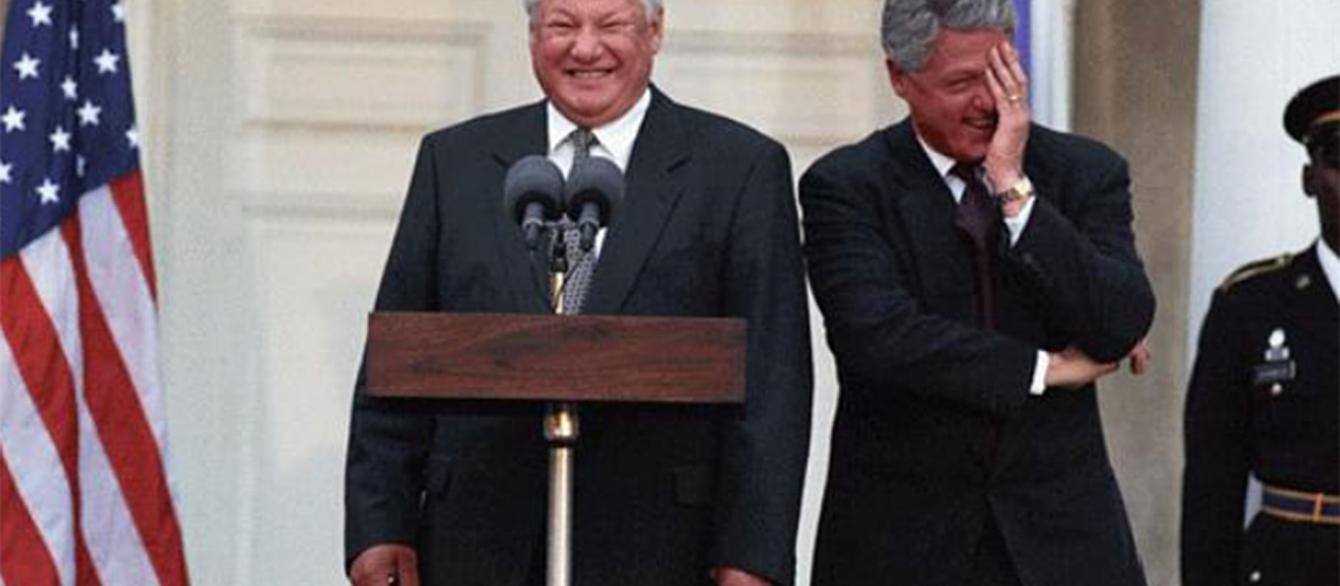As a symbol that Russians and Americans had put the Cold War behind them, the close personal relationship between Boris Yeltsin and Bill Clinton went well beyond diplomatic courtesy. “I liked him,” Clinton later recalled about their first official meeting in 1993, adding, “He was a big bear of a man, full of contradictions—compared with the realistic alternatives, Russia was lucky to have him at the helm.” Yeltsin’s first impression of the U.S. president was even more enthusiastic: “I was completely amazed by this young, eternally smiling man who was powerful, energetic, and handsome.”
However, by the eve of Yeltsin’s resignation in 1999, their relationship had almost completely broken down. They met at an OSCE summit in Istanbul, where they exchanged heated comments about Russia’s conduct in the Second Chechen War. Afterward, the two presidents met alone in a room. Clinton rested his feet on the table, and Yeltsin asked, “Is your leg hurting you?” The meeting ended soon after with Clinton storming out.
Even if their relationship had not been spoiled, Yeltsin and Clinton were both soon to leave office with relatively little to show for their earlier friendship. “Much of the U.S.-Russian relationship was built on the personal ties between Clinton and Yeltsin… yet they also highlighted the lack of institutional links between the two countries,” writes Angela Stent in her book The Limits of Partnership. As George W. Bush would later learn after his relationship with Vladimir Putin had fallen apart, personal connections can only go so far in negotiations.
Personal connections between leaders have their limits. They cannot be relied on exclusively to produce major breakthroughs in complex diplomatic negotiations. They can nonetheless play a nontrivial role in guiding the dynamics of ongoing talks. Even as the U.S.-Russia relationship may currently be in shambles, the recent verbal attacks traded between Joe Biden and Vladimir Putin are likely to further strain efforts to address current issues at stake.
The bottom line: Strong interpersonal relationships can be an asset in negotiations. But you should never rely on them single-handedly to produce positive breakthroughs.
The Limits of Personal Relationships

President William Clinton and President Boris Nikolayevich Yeltsin at Springwood, the home of Franklin Delano Roosevelt in Hyde Park, New York, October 23, 1995. Though initially cordial, the relationship between the two leaders had sharply deteriorated by the time Yeltsin resigned from office four years later.





